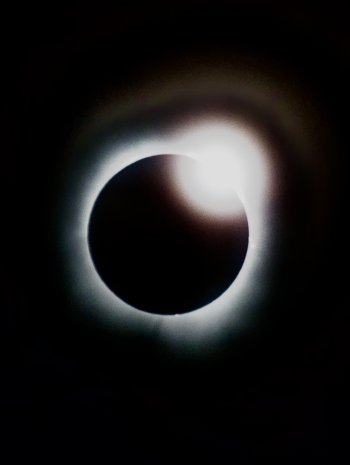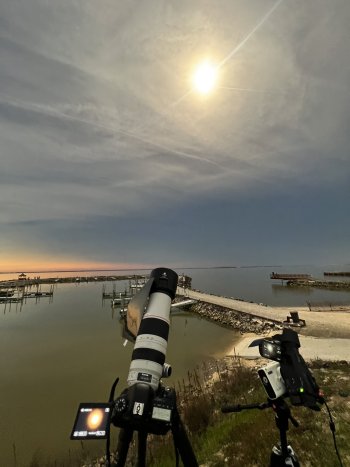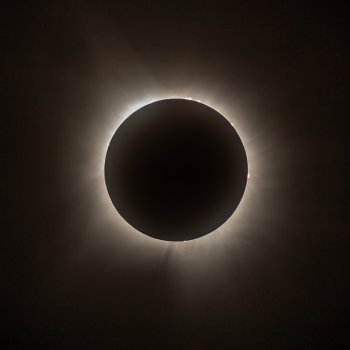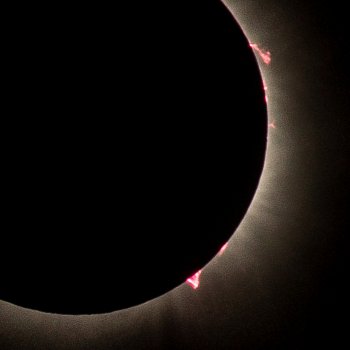I spent a lot to take my family from Los Angeles to Dallas, Texas for the eclipse. I made the reservations a year in advance because I suspected that transportation and lodging would be sold out all around Dallas.
Our ultimate success depended on the cloud cover, so we were biting our nails as the moon crossed in front of the sun, peeking in and out of the clouds. Then the clouds cleared, just in time, 10 minutes before totality, and we had a clear view from then on.
We had stationed ourselves so that we'd see the eclipse over the top of the iconic Margaret Hunt Hill Bridge, getting there early to snag a prime viewing spot. The photo below, from dallasnews.com, shows what we saw, including Venus (visible on the right). Jupiter was visible to us too.
It was an absolutely breathtaking experience: seeing the world darken, feeling the temperature drop and the wind change, seeing a sunset effect in all directions, and looking at the corona without special glasses for 3 minutes and 52 seconds.
Overall, it was a fantastic experience. The science behind total eclipses isn't hard to explain, but the feeling you get is.










